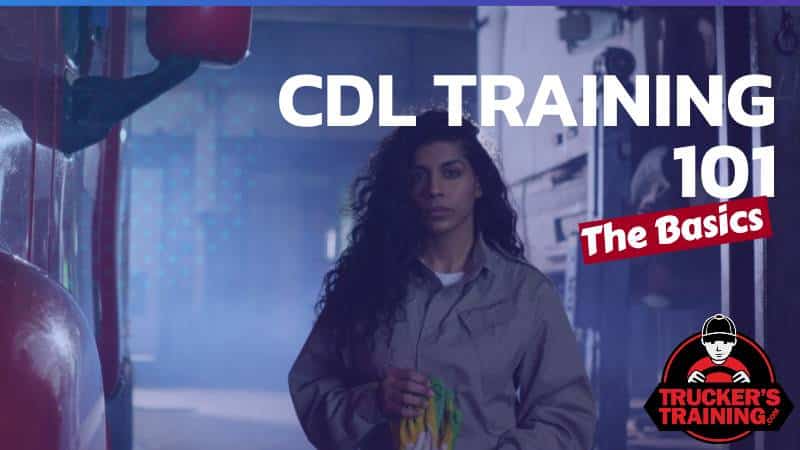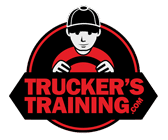What is a CDL?
A Commercial Driver’s License or CDL is a special driver’s license required to operate large or heavy vehicles such as a passenger bus, dump truck, tractor-trailer truck, or concrete mixer. In the U.S., there are 3 CDL classes that determine what type of vehicle you can drive: Class A, Class B and Class C.
There are also various endorsements you can take in addition to your CDL that allows you to haul specific materials or operate certain trailers. For example, with an endorsement H, a truck driver can transport hazardous materials (HAZMAT).

CDL A vs. B vs. C
| License Type | Description |
|---|---|
| CDL A |
|
| CDL B |
|
| CDL C |
|
To become a truck driver, you’ll have to get CDL training, and receive the proper licenses in order to work in the field.
Due to the fact that the larger trucks are more difficult to maneuver, there are regulations in place as to how long you can drive each day, and other factors have a role in to how long you can work in each state, so the licensing requirements may vary.
Contents
What is CDL Training?
CDL training is a specialized form of training for those who want to drive commercial trucks. The commercial driver’s license training is a instructional program which is intended to help students prepare to obtain their CDL license. In order to work as a commercial truck driver, one must obtain the appropriate license.
Early on, the training course will be geared towards classroom learning; this will entail learning the rules of the road, what is required to be a driver, information about requirements in each state, and so forth. You must pass this to receive your commercial learner’s permit or CLP. This serves as a permit that you would receive for your driver’s license class, and allows you to train driving the large trucks; most schools will allow you to drive a commercial truck weighing up to 26,000 pounds.
You will only receive your CDL license, upon completion of CDL training which demonstrates that you are capable of handling the larger trucks, and can safely maneuver them on the road.
What is Entry-Level Driver Training?
The regulations for Entry-Level Driver Training or ELDT set the minimum federal requirements for commercial driver training that entry-level drivers are mandated to complete before they can take certain CDL skills or knowledge tests.
You are required to take ELDT if:
- You want to get your Class A or B CDL license for the first time
- You want to upgrade your Class B to Class A
- You want to get a school bus (S), passenger (P), or hazardous materials (H) endorsement for the first time.
When looking for CDL training, ensure that the school is registered with the FMCSA.
Skills Learned in CDL Training
Of course you will learn a basic skill set in every commercial driver’s license training program and school that you attend. The basics of any course will include:
- Road signs and rules and regulation.
- Ability to maneuver a larger capacity and weight load.
- Learning proper signals on the road.
- Ability to work with the different signals in the trucks you are driving.
- Map reading and trip planning logs.
- Managing log books for hours driven, deliveries made, and hours per fleet.
- Turning, backing up, and different maneuvers with the truck.
Coupling and uncoupling a trailer will also be taught in any school that you attend. Shifting, road driving, and pre and post trip inspections, are also a part of any training course that you take, in order to receive your certification permit, and eventually to receive your cdl license to work as a trucker.
Certain schools might delver further in to their teachings, namely due to the fact that you will be required to learn all state and federal regulations which are laid out. And, depending on the type of truck you are going to be driving, you will find that there are different regulations in place for different states, so the school you attend may add additional forms of training when you are getting ready to earn the license.
Trucks You Will Drive After Trucking School
As the name implies, once you finish truck driving school and have your cdl license, you will be driving commercial grade trucks.
- Class A license is required for tractor trailers, or vehicles that are carrying 26,001 pounds or more when you are behind the wheel.
- Class B license, you are driving vehicles which weigh at a max 26,000 pounds, and are towing in excess of 10,000 pounds.
- Class C licenses will be to carry hazardous materials or chemicals, larger passenger trucks, or vehicles which do not fall within the class B or A.
| CDL License | Vehicle Weight |
|---|---|
| Class A License | 26,001 pounds or more |
| Class B License | 26,000 pounds maximum (towing in excess of 10,000 pounds) |
| Class C License | Vehicles which do not fall within the class B or A (including hazardous materials or chemicals, larger passenger trucks) |
Any commercial truck where you are carrying a larger fleet and heavier weight class is likely to require you to have a license in either of the three classes.
As a CDL driver, you should know what commercial vehicle you want to drive, so that you can go to the right CDL school, and get the proper training to operate that vehicle.
And, certain schools will specialize in either class of training, so you have to know what to expect, and what type of career you are hoping to have as a trucker, to ensure you go to the right school and get the right class license.
What Jobs Require a CDL?
Not all trucking jobs will require you to have a cdl license in order to drive. Depending on the size of the trucks, the amount of hours you will drive, the company that you work at, and other state and federal regulations, certain companies and types of positions will not require you hold a cdl license.
Positions that will generally require you to hold a CDL and have undergone the proper training prior to receiving your license will include:
- Working as a motor coach (Greyhound and other large transport companies)
- Bus drivers for larger companies
- Interstate truck drivers and larger freight truck drivers
- Dump truck drivers
- Drivers with hazardous material and chemical transport
- Local companies (Coca Cola, USPS, Walmart, etc). Working with larger freight and making local deliveries, these drivers will be required to undergo the appropriate training, in order to attain their license, and work for certain companies
How Much Does it Cost to Get Your CDL?
Again, this is a state by state determination, and will also depend on the school you attend. In most cases, you can expect to spend anywhere from $3000, up to near $10,000, in order to attain your truck driver training, as well as your license.
This will not only include the classroom training, it will include the personal coaching, driving the trucks, and receiving the proper training for the exam you will have to take (written and driving), in order to obtain your license.
In most cases, you will pay an all inclusive cost to the school that you attend. This cost will incorporate the total cost of your training, as well as sitting in for the exam you are going to have to pass, in order to attain your license.
But, different states might have certain regulations in place, and this can increase the cost, or decrease the total cost you are going to pay in order to complete your training and to receive the license that you are trying to attain.
Some schools will also sign a contract with you, that for the cost you pay for training, you will have all costs included, and are guaranteed to pass your exam. This means if you do not pass the first time, you can undergo training for a second time, at no additional cost, since you have the guarantee that you are going to pass the course that they provided you with.
It is important to read the documents you sign, to understand all state and federal regulations, and to understand what training the school will provide you. Knowing what rules are in place, and what a school guarantees to you, is the best way to ensure you are not only getting the best possible deal, but that you are also choosing the right training program to assist you when you are trying to get your license, and work in this field.
How to Find Reputable CDL Schools and Programs?
There are a number of schools which are not only found in different states, but found throughout the US. The names of schools will vary in each state. Regardless of what trucking school or CDL training in your local area you’re looking for, it is important to do your research.
Due to the fact that schools have different names in every state, there are a few things to look for, when trying to choose a reputable school to receive your training from. You should:
- Look for schools which are rated by the BBB and other business rating services.
- Make sure the CDL school is registered with the FMCSA
- Find schools that offer you a guarantee, that you will pass, and will provide additional training if you do not pass the exam the first time around.
- Provide full training, in the class as well as on the road, as a part of the cost of your tuition.
- Has online reviews, and has easy to find information on the web.
- Has a website, contact information, and all other important information right on their website.
If you find a small school, or a “free” online cdl training program, you should think twice about signing up for it. Not only is it highly likely a scam, but in most instances, you are going to end up paying money for training you are never going to receive.
So, take the time, and due diligence to do your research, find out what you can about the schools, the training, and drivers. Further, you want to go to a school that only hires training instructors and driving instructors who are licensed, and have worked in the industry. You do not want to get training by an individual who has never driven a truck, and does not know the first thing about driving a larger scale truck.
Just because a school is cheaper than another, doesn’t mean it is a bad place to go for licensing. As long as you do the research, find out about the school, its ratings, and read reviews, you should be able to find a great program, and one that is going to help you to pass your CDL license exam.
It is important to remember that no two schools are going to take the same approach in training. So, you want to find one that uses a program that is easy for you to follow, and easy for you to learn in the teaching environment you are in. Further, you want to do some comparison, prior to simply picking the first school that you find online or when you do a search through the phone book locally.

Geoff is a freelance writer at TruckersTraining.com with 20+ years of experience driving trucks and buses, dispatching, supervising, and training commercial driving teams. His expertise is writing topics on the transportation and trucking industry, and information technology trends.



